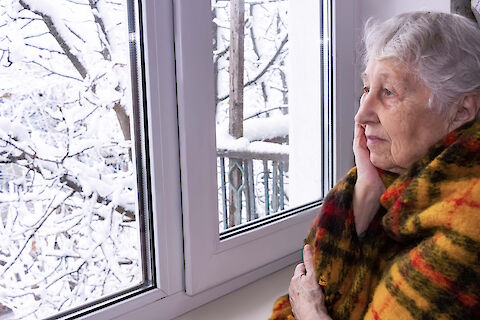
Seasonal Affective Disorder, or SAD, is a significant concern in senior care. As we transition into the chillier months, it's essential to understand and address the impact of this condition on our senior loved ones, especially those receiving in-home care. Often dismissed as simply 'winter blues,' SAD can have serious implications on seniors' mental and physical health. By understanding SAD in the context of senior care, we can take meaningful action to mitigate its effects, improving the quality of life for our seniors during the winter season.
Understanding SAD in Seniors
SAD is a type of depression that emerges with a seasonal pattern. It typically becomes noticeable in the fall and winter months. Therefore, it is vital to understand SAD's particular impacts on senior individuals.
Seniors may experience symptoms such as a drop in energy, increased moodiness, loss of interest in activities they once enjoyed, and sleep disturbances. Importantly, these symptoms impact seniors' overall health, leading to reduced motivation for self-care, physical activity, and social interaction – all of which are critical for their well-being.
SAD and the Role of Family Caregivers
Family caregivers bear the brunt of these challenges as they navigate the waters of caring for seniors affected by SAD. It's not uncommon for caregivers to attribute symptoms of SAD to standard aging processes. Unfortunately, this can lead to the condition going unnoticed and untreated. Thus, recognizing the symptoms of SAD in seniors and understanding how to effectively respond is critical for family caregivers. The caregiver's role should extend beyond mere physical care. It should also incorporate a holistic approach that addresses mental and emotional health needs.
Helping Seniors Cope With SAD
There are various ways that family caregivers can help seniors manage SAD effectively, such as:
Adjust Your Lifestyle
Lifestyle adjustments can go a long way. Encouraging regular physical activity, facilitating a healthy diet, and ensuring the senior gets enough sunlight during the brighter parts of the day can all contribute to alleviating symptoms of SAD.
Environmental Changes
Making environmental changes in the senior's household can also make a significant difference. Keeping living spaces well-lit and warm can counteract some of the negative impacts that the lack of sunlight and cold weather can have on seniors' moods.
Professional Help
If symptoms persist or intensify, you need to seek professional help. This can include help from geriatric psychiatrists, counselors, or senior care agencies that understand the needs of seniors with SAD. Professionals can provide tailored treatment plans, which may include medication, light therapy, or psychotherapy.
Senior Helpers Greenwood & South Indianapolis Helps Seniors Remain Healthy Throughout the Year
Addressing SAD in senior care cannot be overstated. It is a crucial aspect of ensuring our seniors' optimal health and well-being, especially during the challenging winter season. If you're living in the areas of Indianapolis, Greenwood, Columbus, Martinsville, Franklin, or Marion County, and you're seeking guidance in providing the best care for your senior loved ones suffering from SAD, don't hesitate to reach out.
At Senior Helpers Greenwood & South Indianapolis, our team is committed to providing compassionate and comprehensive in-home care services tailored to each individual's needs. We understand the unique struggles of seniors with SAD and train our caregivers to provide the highest level of care. Contact us today, and let us help you navigate the challenges of managing SAD in your loved ones.